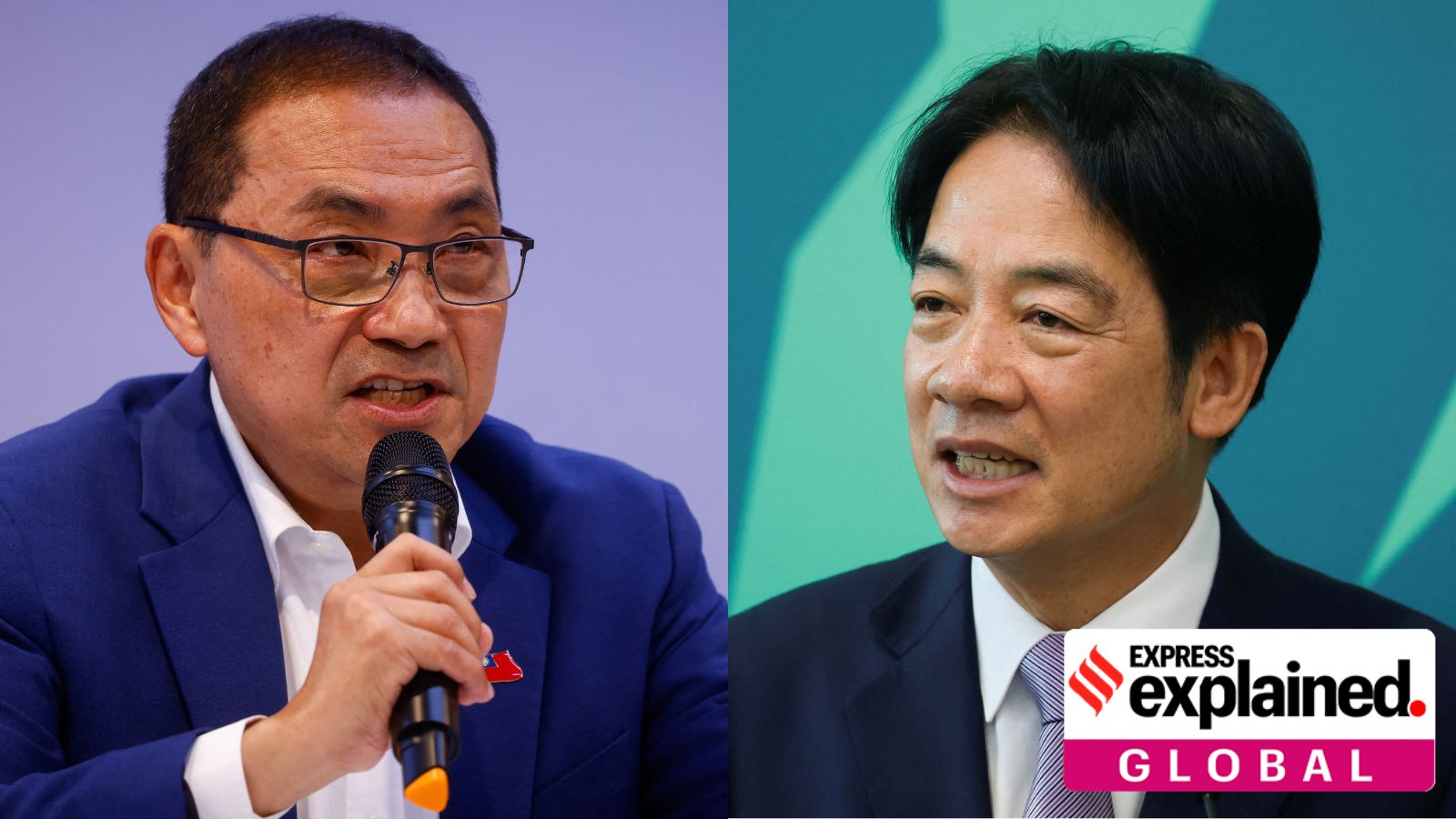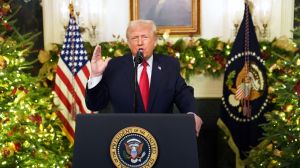On Friday (November 24), candidates filed nominations for Taiwan’s Presidential elections, due to be held on January 13, 2024. The island’s future leadership is likely to have an impact on its currently fraught relations with China.
Here, we explain what the China-Taiwan relationship is like, who the main candidates in the fray are and why the election results matter to the rest of the world.

A brief on Taiwan, and its relationship with China
Taiwan is an island with a population of around 2.3 crores. It is separated from China’s southeastern coast by 160 km. China claims the island as its own, arguing that it was under Chinese emperors’ rule until Japan colonised Taiwan – from 1895 to the end of World War 2 (1939 to 1945).
Many in Taiwan do not agree with this view, pointing to its history before Chinese rule. After the World War ended and Japan was defeated, there was a civil war between two political parties of China for its control. The Mao Zedong-led Communist Party of China (CPC) emerged victorious in 1949, defeating the Nationalist Party or the Kuomintang (KMT). The party, led by Chiang Kai Shek, fled to Taiwan and established their rule here.
China continued claiming Taiwan as its own, viewing it as a renegade province that would sooner or later be fully integrated. Meanwhile, Chiang ruled Taiwan until his death in 1975. Only then did the political setup move towards a multi-party, semi-presidential democracy that continues to date. Beginning in the late 1990s, Presidential elections have been held every four years and local elections are also held.
Why do Taiwan elections matter to the rest of the world?
The United Nations does not recognise Taiwan as a separate country and only 12 countries around the world — mainly in South America, the Caribbean, Oceania, and the Vatican — do. But its relations with China, which has grown to play an influential role in global affairs, have wider ramifications.
Of late, China has increasingly engaged in rhetoric on its claims. Chinese President Xi Jinping said in 2019, “Reunification is the historical trend and it is the right path,” and “Taiwan’s independence is a reversal of history and a dead-end road.” Amending the constitution in 2022, China’s Communist Party added the principle of “opposing and containing Taiwan independence” to it, meaning it was open to using force.
Story continues below this ad
In what is perceived as a show of strength by experts, China has also sent planes near Taiwan in large numbers. According to The New York Times’s report, Taiwan tracked 103 People’s Liberation Army aircraft from China entering its air defence identification zone in a single day, in September 2023. None entered Taiwan’s airspace.
China’s claims are in line with the government’s larger assertions in matters of foreign policy and security under President Xi since he came to power in 2013. It also follows deteriorating China-US ties and China’s worsening ties with countries such as India and Japan over matters ranging from trade to border issues.
The United States officially follows the ‘One China policy’, but also maintains strategic ambiguity. It has no formal ties with Taipei but remains Taiwan’s most important international backer and arms supplier. In June 2022, US President Joe Biden said that the US would defend Taiwan if it was invaded, but it was clarified soon afterwards that America does not support Taiwan’s independence.
The worry is that the re-election of a party that leans towards Taiwanese independence could result in attempts to militarily control Taiwan. Russia’s invasion of Ukraine affected global prices of commodities, foodgrains and oil, and led to an influx of Ukrainian immigration to other parts of Europe. If a similar situation breaks out here, it would be of concern globally also because of Taiwan’s dominant role as a global producer of semiconductors. These are chips that are needed to run most electronic devices today, smartphones, laptops and more.
Story continues below this ad
Who are the candidates and parties in the fray?
1. Lai Ching-te, Democratic Progressive Party (DPP)
Current President Tsai Ing-wen has served two consecutive terms as President. She is from the frontrunner DPP, but will not contest due to term limits. Lai, 64, is the DPP candidate and is also the current Taiwanese vice president.
His party has been vocal about Taiwanese nationalism. Lai, along with Tsai, has repeatedly offered talks with China, which sees them as separatists. In general, the party has a centre-left position.
2. Hou Yu-Ih, Kuomintang (KMT)
Hou, 66, is a popular mayor of the city of New Taipei, having won re-election last year by a landslide.
Story continues below this ad
The KMT has favoured closer ties with China and is against Taiwanese independence. Hou has said he will restart talks with Beijing.
3. Ko Wen-je, Taiwan People’s Party (TPP)
Ko, 64, is a former Taipei mayor. He’s from the Taiwan People’s Party, a smaller party that was earlier supposed to have a joint ticket with the KMT. However, those talks failed, which has bolstered the chances of DPP maintaining its hold on power.
A fourth candidate, Terry Gou, the billionaire founder of the tech giant and major Apple supplier Foxconn, announced on Friday he was leaving the race, after his candidacy did not attract much support.
(With AP, Reuters inputs)








































